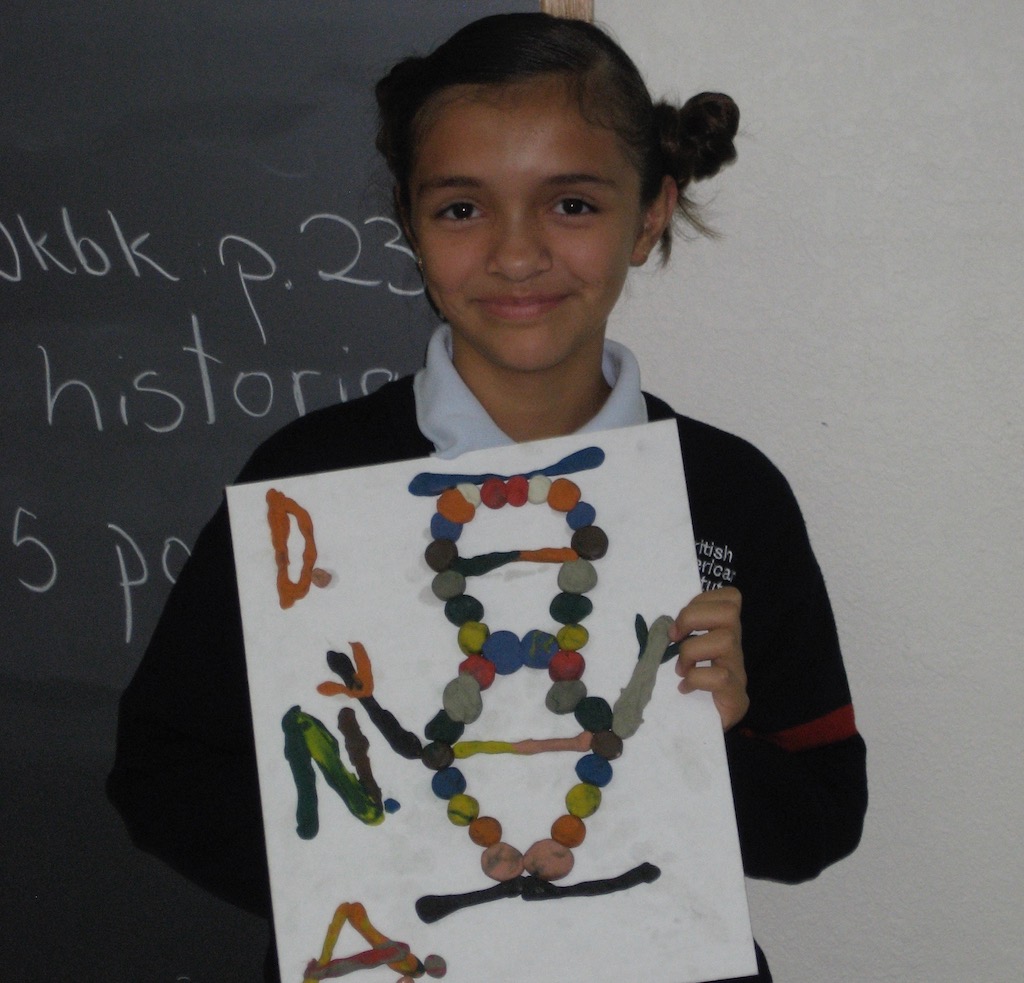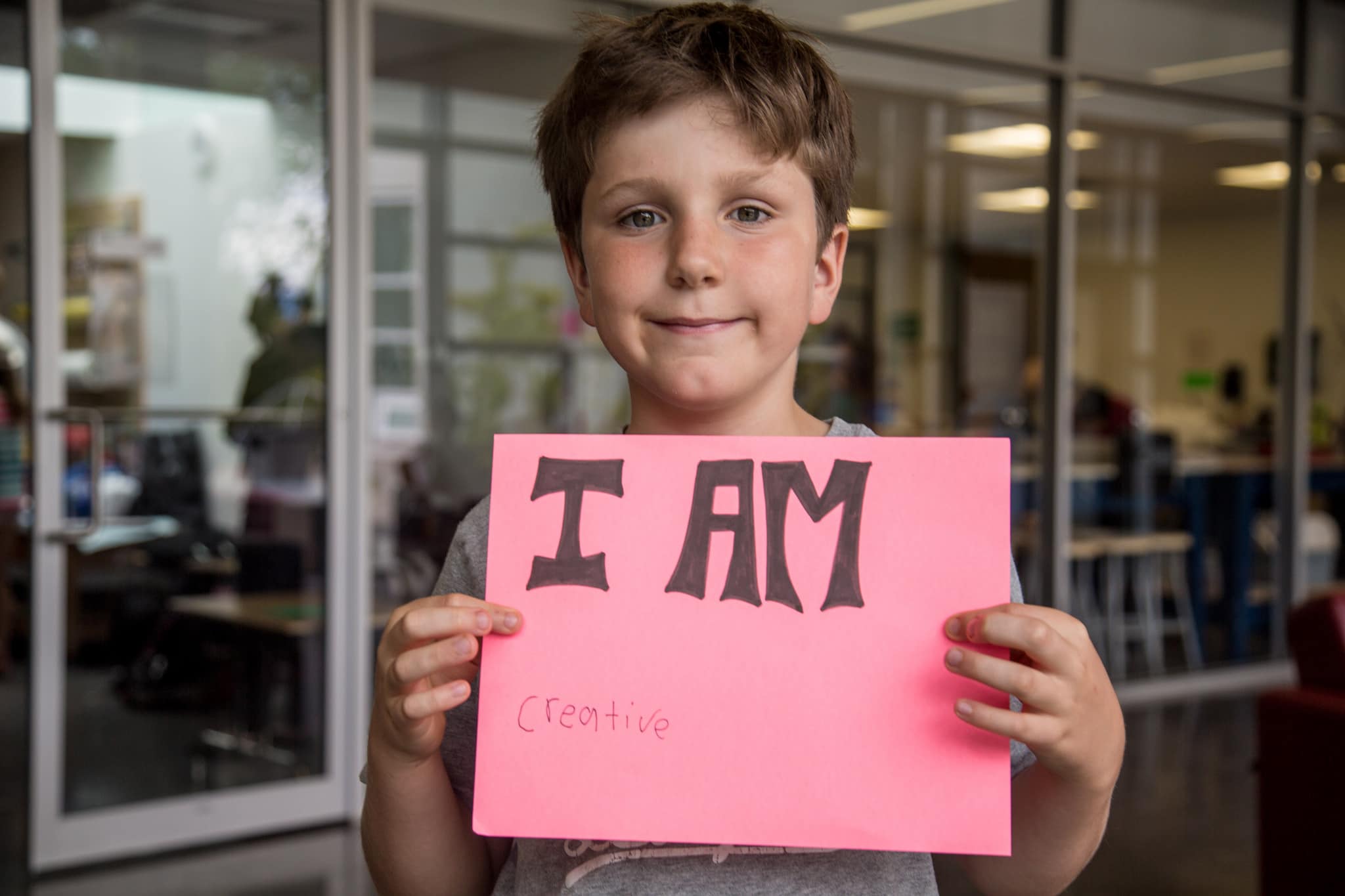Child Development Research, Insights, and Science Briefs to Your Inbox
Early child development is underpinned by brain development, by genetic and epigenetic inheritance and by physical development. Two key features of early childhood development that researchers study are ‘self-regulation’ and ‘executive function’.
Parental care shapes early childhood development. Neglect, the absence of adequate parental care, is a severe threat to early childhood development. Over-exposure to stress – ‘toxic stress’ – undermines development while strong relationships with parents provide protection and build resilience.
The mechanics of early childhood development
The brain
The human brain develops continually through childhood development, from before the birth and into adulthood. Like the construction of a building, the foundations are laid early. The brain builds from the bottom up in clearly defined development stages. That’s why early support for development is so important. A stronger foundation not only means the child is further ahead at a given moment in time, it also means learning and development can proceed more rapidly in the future.
Early childhood development sees the brain developing extremely rapidly. Billions of new connections are created every hour among neurons in different parts of the brain. After this rapid proliferation, brain development shifts towards efficiency. Some neural connections are made stronger and faster and others are pruned and lost. Meanwhile, the brain builds ever more sophisticated connections during later childhood and adolescence, associated with more enhanced skills. Pruning continues.
Brain development fundamentally shapes early child development stages. More basic capacities, such as vision, hearing and touch, develop earlier on. Later comes the development of more complex capacities, such as communication, understanding facial expressions, reasoning, and decision-making. Higher-level skills, such as the ability to sustain attention, set goals, follow rules, solve problems and control impulses, start developing in early childhood and continue through adolescence.
Children’s experiences of the world – how they see, hear and feel, and how they relate with parents and other carers – shape every aspect of the brain’s development. This reinforces some circuits and allowing others to be lost.
Genetics and epigenetics
The genes that children receive from their mothers and fathers give them certain predispositions and susceptibilities that influence early child development. Some children are naturally less fearful than others, for example, and those who are less fearful are less at risk of long-term anxiety and depression.

Photo: will kay. Creative Commons.
But some researchers have found that children who are more vulnerable to adverse environments may also be more sensitive to positive experiences and profit from them more. (See our article, Tackling child behaviour problems effectively requires better understanding of differences between an ‘orchid’ child and a ‘dandelion’ child.) This provides great hope for supporting more vulnerable children.
Experiences of the world, including relationships within the family and community, can influence the expression of genes rather than the genes themselves. Positive and negative experiences result in the production of proteins that regulate gene activity, creating temporary or permanent changes in the “epigenome”. These epigenetic changes to how genes are expressed can be inherited by the next generation. For example, the children of men and women who survived the Holocaust have inherited epigenetic changes associated with response to extreme stress. (See our article, Epigenetics offers hope for disadvantaged children.)
Physical development in early childhood
Early childhood development is defined not only by brain development and genetics/epigenetics. Cardiovascular, immune, neuroendocrine and metabolic systems all have a role to play in shaping a child’s capacities for the future.
Everything is intertwined. Supporting early child development is about ensuring that all the strands are strong.
Components of early child development
Although researchers still debate how to define different components of early childhood development, a number of concepts have become mainstream in the field.
The three domains of development most widely discussed are cognitive (thinking), social and emotional. Research has demonstrated that these are closely intertwined. Their development is associated with neural activity across the entire brain.
The connections can also be seen in children’s behaviour. For example, children develop the ability to think through relationships with carers. A child with high social skills will typically develop cognitive skills more quickly.
Self-regulation
Based in a part of the brain called the amygdala is an automatic and impulsive response to risk and danger, commonly known as the “fight or flight response”. Self-regulation is the ability to bring in a more conscious response to a situation, working out how to respond in that moment. It may be that more planned responses counteract the initial fight or flight instinct. The ability to regulate emotion is a vital skill acquired in early childhood in part through relationship with carers.
Executive function
Executive function is a cluster of skills that emerge in early child development that create the foundations for learning and interacting well with others. Researchers have divided executive function into several distinct abilities:
- Working memory – holding and using information for short periods of time.
- Mental flexibility (or cognitive flexibility) – adapting quickly in response to external stimuli.
- Self-control (or inhibitory control) – resisting impulsive behaviour.
- Sustaining focus and attention throughout a task.
- Solving problems.
- Following rules.
- Setting goals.
- Delaying immediate gratification for more reward later.

Photo: kris krüg. Creative Commons.
Developing executive function is a key part of the early childhood development stages. By the age of three, basic executive functions are in place – remembering and following simple rules. The skills develop substantially between the ages of three and five, but they continue to develop right through adolescence.
These more advanced stages of early child development involve increased speed and efficiency of neural circuits acting across different parts of the brain.
Parental care shapes early child development
Responsive caregiving from parents, the wider family and all those involved in a child’s life, along with experience of the world, shape children’s development. Researchers have coined the term “serve and return” to describe the reciprocal actions with parents and carers.
Multiple relationships enhance social and emotional development, building the child’s ability to sustain strong relationships in future. A child with multiple stable and caring relationships has a strong advantage. Conversely, a child without even one stable and responsive relationship is at a severe disadvantage.
Researchers have used the term “scaffolding” to describe the environment that caregivers can create for children to practice skills. Scaffolding includes establishing routines, modelling social behaviour, enabling creative play, facilitating social connection and encouraging physical exercise.
Threats to healthy early child development: neglect and toxic stress
Neglect
The world’s most widespread risk to children is a lack of responsive care, known as neglect: 78% of all child maltreatment cases in the world relate to neglect, which can have a more detrimental impact on early child development than physical abuse.

Photo: Brandon Warren. Creative Commons.
Like physical abuse, neglect severely disrupts the brain’s development in early childhood by depriving children of adequate relationships, thereby altering the development of biological stress-response systems. Neglect is related to a multitude of poor outcomes in children’s later life – mental health, physical health, social relations and educational achievement.
Toxic stress
Stress, as a part of learning how to cope with adversity, is a normal and essential part of early child development. A threat triggers physiological changes associated with the hormone cortisol that support a quick response to mitigate the danger. A child exposed to simple stresses, and protected by strong relationships with adults, learns to cope, and to regulate the stress response system. Strong relationships can also mitigate the potentially damaging effects of high levels of stress caused by events like the death of a loved one, serious injury, or a local disaster.
Excessive and prolonged stress, termed toxic stress, is not a normal part of early child development. Examples of toxic stress include physical and emotional abuse, chronic neglect, poor care as a result of drugs or mental illness, persistent poverty and prolonged exposure to violence.
Exposure to chaos and constant threat impairs the development of self-regulation, trapping children in an instinctive fight and flight response. Toxic stress that undermines early childhood development stages is associated with many poor outcomes in later life.
Building resilience through relationships
Relationships with caregivers are the key to protecting children from the adverse effects of stress. Early in life, such care can prevent or even reverse the damaging effects of toxic stress.
Resilience emerges when a child exposed to stress also has access to reliable and nurturing relationships. A child’s heightened physiological response to stress can be restored by relating to a caring adult. Exposure to stress in the presence of a caring adult can help the child learn to feel some control in the situation and to develop self-regulation.